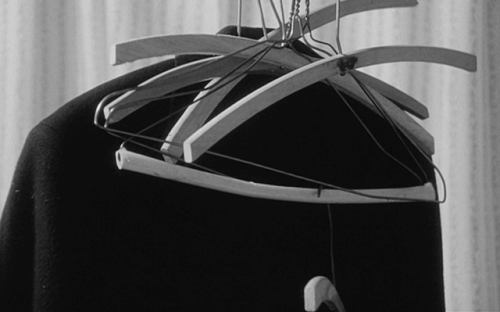

Robert Schwentke: I was looking actively for a story that would allow me to take a look at the dynamic structure of national socialism. How did you discover Willi Herold's story and what compelled you to make a film about it? Video is no longer available: No Film School: After watching The Captain, I was very surprised to learn that it was based on a true story. No Film School caught up with the German director prior to his film's premiere in New York and Los Angeles to discuss utilizing the Brechtian method of distancing, how he framed many shots in order to "not show something," and why filmmakers have stopped innovating in narrative storytelling. With the moral distance afforded by Schwentke's careful approach, the audience is encouraged to sit back and analyze the harrowing psychology at the root of fascism. There are few close-ups the camera keeps its distance and often looms overhead, a specter of a conscience looking down upon the reprehensible actions of man. The tone is farcical-so much so that it borders on the absurd. Save for one crucial scene, Schwentke and his cinematographer Florian Ballhaus shot the film entirely in black-and-white. He will subject them to the brutality for which Nazi officials are well known. Over the course of the next two weeks, Herold, claiming to heed direct orders from the Führer, will overtake a German prison camp for deserters.


He encounters other opportunistic marauders, persuades them to join him by telling a story about receiving orders directly from Hitler, and summarily develops a taste for power. After narrowly fleeing a troop of soldiers hunting deserters like himself, Herold stumbles upon a decorated captain's uniform in an abandoned truck.

21-year-old corporal Willi Herold (Max Hubacher) is one of them. As the Third Reich unravels, soldiers on the German front begin to desert and pillage. The Captain takes place in the waning days of World War II. If audiences don't like it? Well, that's no concern of his. Taking a cerebral approach to a nearly untouchable subject, Schwentke's film is a challenging watch. But you won't recognize any elements of those films in The Captain. Schwentke's first independent effort is a singular vision-one that decidedly eschews convention. You may recognize Robert Schwentke's name from Hollywood blockbusters such as the Insurgent franchise, RED, or The Time Traveler's Wife. Hollywood director Robert Schwentke doesn't care whether audiences like 'The Captain,' his first indie film.


 0 kommentar(er)
0 kommentar(er)
